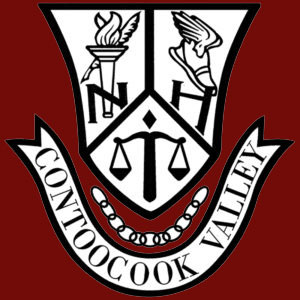by ConVal School Board Members Bernd Foecking and Janine Lesser
After looking at the 2018-2019 tax bill and the proposed budget for 2019-2020, it can appear that educating ConVal students is expensive. Closer examination: the average per pupil cost in ConVal is slightly below the average for New Hampshire. Until recently, the ConVal school budget had been flat, rising under 1% each year. However, the voters approved last year’s budget and the Fact Finder Report. This provided a salary increase to those covered by the CVEA contract bringing our pay scale almost in line with districts where we compete for teachers and special service professionals. This was a strong statement; ConVal residents want to support the schools and the students, and they want their staff paid in a competitive way.
Exacerbating the budget are two important factors that without intervention will continue: decreased student enrollment and downshifting the cost of a NH constitutionally guaranteed public education to local property taxes. This trend will continue.
The nine communities all feel the tax increases; some more than others depending on the year and reassessment factors. We have seen many opinions and guesses about how much a school consolidation could save the district and, consequently, each town. Over the past three years, the school board and administration have been involved in trying to find a district reconfiguration plan that is educationally sound first, and fiscally sound second. This included trying to come up with a projected financial estimate. Consolidation would be a significant shift in how and where we deliver education. We can look at the budget and remove the cost for the community schools including the services that are delivered at those schools and draw our conclusions from those numbers. We can come up with numbers for additional bus routes. We can estimate how big classes could be, how many extra students could be educated with the faculty at the remaining schools as well as project how many positions would be eliminated.
While we can come up with those numbers, we have not found a way to create a firm estimate on how much a consolidation could really save. It is more complex than just simple addition.
We first have to create a model that looks at the educational plan. Will we be able to deliver services with the same quality as we do now? Is there a chance to increase services (maybe contemplate universal pre-K?) with plans for consolidation? The towns in our district who may face school closures– Hancock, Temple, Dublin, Greenfield, Bennington and Francestown–are, in most cases, opposed to those closures. The communities around our small elementary schools want answers as to how a school closing might affect their community, and what the proposed education will look like. All nine towns need a defendable estimate as to what the savings will be. And what might be the unintended consequences. These questions are valid and must be answered to the fullest extent possible.
We are in favor of giving the voter the chance to vote on a sound consolidation plan. And, much work towards this has been done. Though we could have pushed it through for the March 2019 ballot, in the end many school board members and the Selectmen’s Advisory Committee felt that we simply did not have enough answers to move consolidation onto the ballot.
Taking this step without sound answers for the public will undoubtedly lead to the disintegration of the district. Implementation of such a plan is a long, multi-year process, but begins with support by all nine communities. While it might seem that a decision was pushed down the road for another year, a better starting point–a plan with more answers– might mean a shorter implementation period.
We do want to caution against using firm numbers in any discussion about consolidation. It is misleading and we then tend to focus on a numerical goal. We will continue working towards an excellent alternative to how we deliver services where the monetary savings would be a welcome bonus. However, it is important to remember that without the state taking up its constitutional responsibility to children, tax relief will be fairly small and short termed.
In closing, it is crucial that everyone support the 2019-2020 operating budget. It is a “maintenance of efforts” budget. Community members who doubt this reality must look at the past five years to see how the budget absorbed contractual and inflation increases. Therefore, the administration started this current budget cycle with a stripped down, minimalist budget. If it does not pass, the default budget would mean drastic cuts to programming that will have a direct impact on our students.

